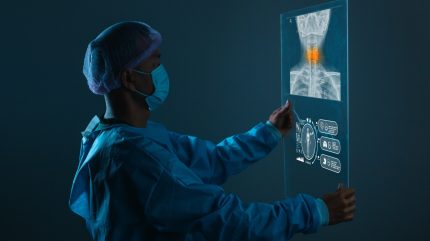
MSD (Merck & Co.) has reported that the Phase III KEYNOTE-689 trial of its KEYTRUDA (pembrolizumab) for the treatment of head and neck squamous cell carcinoma (HNSCC) met the primary endpoint of event-free survival (EFS).
The randomised, active-controlled, open-label trial involved 704 treatment-naïve patients with newly diagnosed stage III or IVA resected, locally advanced HNSCC (LA-HNSCC).

Discover B2B Marketing That Performs
Combine business intelligence and editorial excellence to reach engaged professionals across 36 leading media platforms.
The study’s design included KEYTRUDA as a neoadjuvant therapy, followed by adjuvant treatment with KEYTRUDA in combination with standard-of-care radiotherapy (with or without cisplatin), and then as a maintenance therapy.
EFS was the primary endpoint while secondary endpoints included OS, major pathological response (mPR), pathological complete response and safety.
An independent data monitoring committee conducted a pre-specified interim analysis, which revealed a statistically significant and clinically meaningful improvement in EFS for patients receiving the KEYTRUDA as a perioperative treatment regimen.
The trial also demonstrated a statistically significant improvement in mPR, a key secondary endpoint, for patients in the KEYTRUDA arm versus those receiving adjuvant radiotherapy alone.

US Tariffs are shifting - will you react or anticipate?
Don’t let policy changes catch you off guard. Stay proactive with real-time data and expert analysis.
By GlobalDataKEYTRUDA’s safety profile in this trial was found to be in line with previous studies, without any new safety concerns emerging.
In addition, while a trend toward improvement in overall survival (OS) was noted, the results did not reach statistical significance for patients, with tumours showing a PD-L1 Combined Positive Score (CPS) of ≥10.
Merck Research Laboratories oncology, global clinical development senior vice-president and head Dr Marjorie Green said: “These results are substantial, as KEYNOTE-689 marks the first positive trial in two decades for patients with resected, locally advanced head and neck squamous cell carcinoma.
“These statistically significant and clinically meaningful findings have the potential to be practice-changing and continue to highlight the promising role of KEYTRUDA for certain patients with earlier stages of disease.”
In August this year, MSD announced the discontinuation of two Phase III clinical trials of KEYTRUDA.





